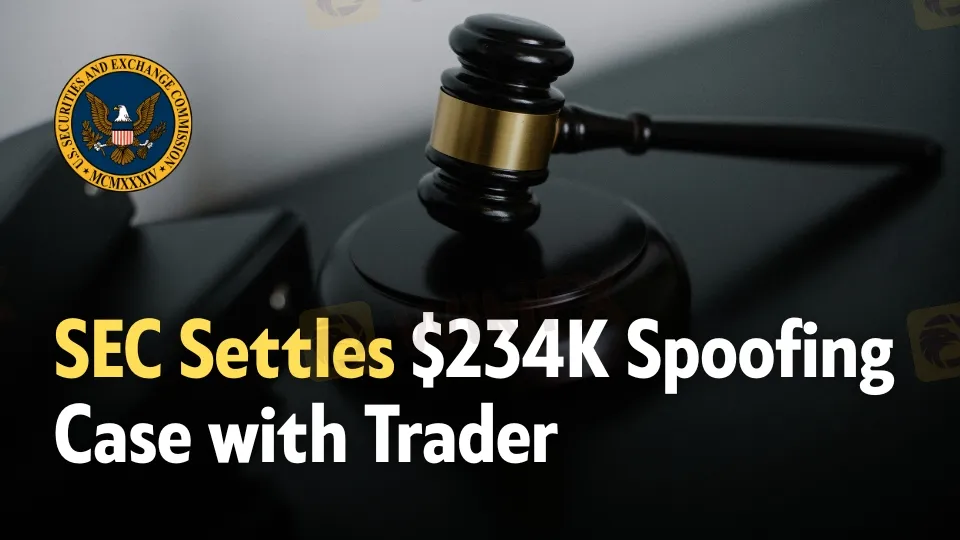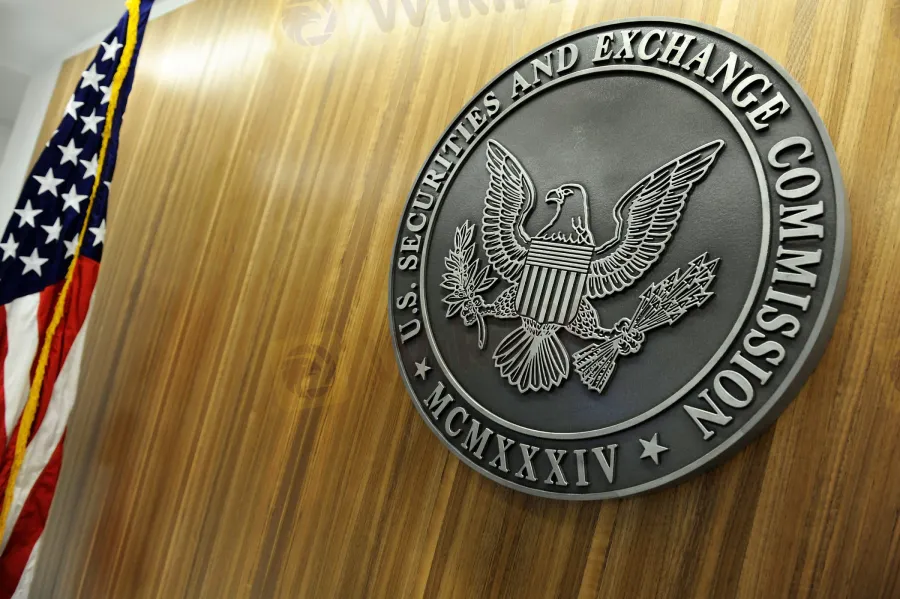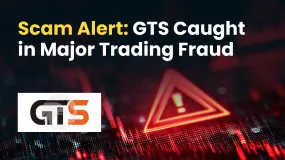SEC Settles California Trader with Over $234,000 Spoofing Scheme
Abstract:The SEC settles with Ryan N. Cole, imposing a $234,000 fine and a five-year trading ban for spoofing in the options market, marking a crackdown on market manipulation.

The SEC has reached a settlement with trader Ryan N. Cole over an alleged options spoofing scheme that generated approximately $234,000 in illicit profits, with the deal requiring disgorgement, prejudgment interest, a civil penalty, and rare five-year SEC trading restrictions subject to court approval.
According to the SEC complaint, Cole allegedly used spoof orders in thinly traded options to manipulate the National Best Bid and Offer before executing multi-leg immediate-or-cancel orders at favorable prices influenced by his visible activity.
Cole consented, without admitting or denying the allegations, to a final judgment imposing permanent injunctive relief, $234,803 in disgorgement, $52,656 in prejudgment interest, and a $70,441 civil penalty, alongside the five-year prohibition on opening or trading in brokerage accounts without providing brokers copies of the complaint and judgment.
How the Scheme Worked
Regulators allege Cole placed large visible day-limit spoof orders across neighboring options series to create an illusion of supply or demand, tightening wide bid-ask spreads in thin markets.
When spreads narrowed, he allegedly fired multi-leg IOC orders through the complex order book—often across venues—to capture fills at prices influenced by the spoofing, then canceled the decoy orders and repeated the tactic to exit positions.
The SEC also alleges he attempted to conceal the activity from his employers compliance staff, providing evasive responses before being terminated in February 2022.

Legal Basis and Enforcement Context
While spoofing is explicitly prohibited in futures under the Dodd-Frank Acts anti-spoofing provision in the Commodity Exchange Act, the SEC brings securities spoofing cases under antifraud and anti-manipulation provisions, including Exchange Act Section 10(b), Rule 10b-5, Securities Act Section 17(a), and Exchange Act Section 9(a)(2).
The SEC‘s complaint charges Cole with violations of Section 17(a)(1) and (3), Section 10(b) and Rules 10b-5(a) and (c), and Section 9(a)(2), reflecting the agency’s securities-market approach to spoofing enforcement distinct from the Dodd-Frank Act spoofing ban in futures markets.
The case aligns with the SECs broader push to police options market manipulation, aided by cross-venue surveillance and data analytics that flag patterns such as high cancel-to-trade ratios and repeated IOC usage after visible order placement.
The Five-Year Restriction
Under the proposed final judgment, Cole would be prohibited for five years from opening, maintaining, or trading in any brokerage account in his name, family members names, entities he controls, or third parties, without first providing the broker-dealer a copy of the SEC complaint and final judgment.
This condition underscores the SECs message that individual traders—not only institutions—face aggressive enforcement when their conduct manipulates market microstructure in the options market.
Why It Matters
The settlement highlights the SECs continued focus on options market integrity and the evolving toolkit to detect spoofing-style options manipulation, even where the Dodd-Frank Act spoofing ban applies expressly to futures rather than securities markets.
For market participants, the case underscores that spoof orders described in an SEC complaint can trigger severe remedies, including injunctive relief, disgorgement, civil penalties, and multi-year trading restrictions—particularly where schemes exploit thin liquidity and complex order routing via IOC orders.
Stay tuned for the latest news from financial authorities and major regulatory bodies. Scan the QR code below to download and install the WikiFX App on your smartphone.

Read more

Planning to Invest in Trade245? Read These Negative Trader Reviews First!
Setting your sights on Trade245? Think again! Traders are witnessing massive problems that extend beyond withdrawal denials. The issues include blown-up accounts due to trading manipulation, along with high spreads and commissions. As a result, traders witness only losses even when they are not supposed to. This has made the situation highly complicated for them. In this article, we have exposed Trade245 for its financially illicit acts. Read on!

Zerodha Scam: Investor Loses ₹3.5 Lakh ! Spot the Red Flags & Protect Yourself
Indian investor Maryam Khan, 35, was scammed out of nearly ₹35 Lakh in a fraudulent stock investment scheme orchestrated by individuals impersonating the legitimate financial firm Zerodha. The scam began when Khan came across a Facebook Reel on July 4 promoting fake investment opportunities. After contacting the WhatsApp number listed in the ad,

Scam Alert: GTS Caught in Major Trading Fraud
Have you been deceived by GTS officials? Has this forex broker prevented you from withdrawing funds? Unfortunately, you have been scammed! File a complaint with the authorities soon to recover your funds. Many have accused this forex broker of serious fraud allegations on several broker review platforms. Our WikiFX team found a massive number of trader complaints against this broker. In this article, we will share them with you.

Best 5 Low-Spread FX Brokers in India 2025
Forex trading has grown rapidly in India, and choosing the right broker is critical—especially when it comes to spreads. A low spread broker means lower trading costs and higher potential profits, especially for active traders and scalpers. In this article, we list the top 5 low-spread forex brokers in India for 2025, trusted for their tight spreads, fast execution, and strong global reputation.
WikiFX Broker
Latest News
Datuk Seri Linked to RM8.4 Million Gold Investment Scam Under Police Probe
The Psychology Behind the Ascending Triangle Pattern in Forex
Charles Schwab Forex Review 2025: What Traders Should Know
The Global Inflation Outlook
What WikiFX Found When It Looked Into XS
ASIC Regulated Forex Brokers: A Comprehensive 2025 Guide
Is TradeEU Reliable in 2025?
Professional Forex Trading: Skills, Tools, & Strategies for Success
Investing in OnFin? Absurd Withdrawal Conditions & Trade Manipulation May Spoil Your Trading Mood
How Commodity Prices Affect Forex Correlation Charts
Rate Calc

